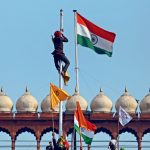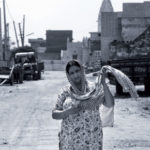True Life
The Final Sin
The Church refused to let Jolly Thomas bury her husband till she gave them 25 cents of land. Forty years later, she recalls her lonely court battle against the institution, which she won only to find her husband’s grave now lying outside church premises. This is the story of how Jolly built a chapel, her own Taj Mahal, for her beloved husband Thampi
 Shahina KK
Shahina KK
 Shahina KK
06 Aug, 2011
Shahina KK
06 Aug, 2011
This is the story of how Jolly built a chapel, her own Taj Mahal, for her beloved husband Thampi
It was the third day since the demise of her husband, Umman Thomas affectionately called Thampi. His mortal remains lay on the verandah of Estate Bungalow in Thamarassery, Kozhikode, where Jolly Thomas had spent 23 years of her life with him.
Sitting beside his ice-cold body, Jolly had not a tear to shed; she was too numb. It was hard for her to digest the fact that the world could be brutish enough to bargain over a dead body. The Church would not give her permission to bury her husband unless she donated them 25 cents of land. Jolly had refused to give in and three days passed. She could not cope with this ugly display of avarice. On the third day, out of sheer helplessness, Jolly relinquished. She gave 25 cents of land to the Church in writing and Thampi got to rest in peace on Church grounds.
“The day I got the land back through a court order, I lit 25 candles on his grave and sat there alone till the last candle had burnt out,” Jolly says.
Jolly Thomas was the only daughter of KM Abraham, who worked in Malaysia as the manager of a rubber plantation run by a British company. Her parents, though, wanted her to be educated in Kerala, and she was admitted to an English medium school in Kottayam run by a British woman. The year of India’s independence, Jolly’s parents returned to Kerala, bought tea estates in Coorg in Karnataka and rubber plantations in Kozhikode and Wayanadu districts of Kerala. They were keen that she marry someone living in Kerala as they wanted to settle down with her. Thus, Umman Thomas, a young planter, came into her life.
“I was only 21 and he was 22. We were like kids. He was light-hearted, playful and always happy. I never saw him worry over business matters. He used to say, ‘Life is short, why waste it on worries’.” Jolly pauses, her voice choking, “I am able to tell you all this only because 40 years have passed.”
Thampi died on 22 July 1972. A week earlier, he had complained of a slight chest pain and was admitted to Medical Mission Hospital in Vellore, Tamil Nadu. Even in her worst dreams, Jolly had not imagined that her journey back to Kerala would be with his mortal remains. “He appeared normal even the previous day. It was late at night; I woke up to the sound of abnormal breathing. I saw Thampi trying hard to breath. I tried to give him some water. In seconds, everything was over. He had gone forever. I didn’t even realise it for a few minutes.”
That very night, Jolly returned to Kerala. “We were in a Chevrolet. My son and I sat at the back, Thampi on our laps. I was in a state of trance. I could hardly believe that the man with whom I had spent 23 years was lying dead in my lap.”
The next day began her tryst with the Marthoma Church, of which her husband’s family were members. The church building adjacent to their estate had been built on land provided by Thampi’s father, Captain C Umman, a doctor with the Indian Army. His condition, though, was that it should not be used as a burial ground. He did not want a cemetery adjacent to the estate.
This threw Jolly into a quandary; she wanted to bury her husband in the church close to their estate. So, she offered the church five cents of land to bury her husband. Then, she saw those claiming to be servants of God baring their fangs. They demanded 25 cents.
“It was not only a shameless expression of greed. Some of the church administrators had some personal problems with my husband and father-in-law about labour issues on the estate. This was an act of vengeance,” she says. And so, Thampi was finally laid to rest on land grabbed from his wife.
The first time Jolly left her house after his death was to consult a lawyer and move a petition in court against the Church. She was all alone in this battle. Her relatives didn’t want to take a public stand against the Church. The litigation lasted 14 months, at the end of which Jolly emerged victorious. The court ruled that the land had been grabbed by the Church through pressure and intimidation.
“Winning over the Church did not give me peace of mind, as I had expected. I was in deep agony to see Thampi’s grave lying isolated outside the church premises. That prompted me to build a chapel.” In a few months, Thampi was honoured with a grand monument in marble, which was consecrated by the Orthodox Church.
“Saab anther he, memsab idhar he, ham kidhar he..?” Jolly recalls Sing Bir Bahadur, a Gorkha who worked with her as a security guard for 35 years, asking each time he visited Thampi’s grave. He passed away from cancer in 2006 and Jolly buried him there. “I used to show him a place near Thampi’s grave and tell him that he would be given a place there. He had no relatives. I took his body to a nearby temple and performed all the Hindu rituals before burying him.”
Despite being brought up the way she was, Jolly is not overtly religious, not even particular about attending services in the chapel she built. “Belief matters, but religion does not,” says Jolly, now 84, lighting a candle at the tomb of her husband Thampi.
/wp-content/uploads/2015/11/true-life-sin.jpg)

/wp-content/uploads/2025/04/Cover-Rashmika-New.jpg)












More Columns
Saving Farmers from the Unions Siddharth Singh
The New Hotspot Kaveree Bamzai
Chills and Spills in Small Town America Kaveree Bamzai